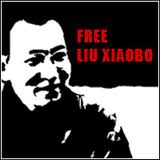Celebrating Liu Xiaobo
 On the eve of today’s Nobel ceremony, John Ralston Saul calls on China to listen to its real friends and free Liu Xiaobo
On the eve of today’s Nobel ceremony, John Ralston Saul calls on China to listen to its real friends and free Liu Xiaobo
 On the eve of today’s Nobel ceremony, John Ralston Saul calls on China to listen to its real friends and free Liu Xiaobo
On the eve of today’s Nobel ceremony, John Ralston Saul calls on China to listen to its real friends and free Liu Xiaobo
Sixty thousand websites deemed to host pornographic content have been shut down by the government since December 2009. The National Office Against Pornographic and Illegal Publications also said some 1.6 million websites had been checked. The office revealed many of the offending websites were discovered through informants. Five hundred and sixteen informers have been rewarded with USD 79,000 since the crackdown started.
Zhao Lianhai, the father of one of about 300,000 children poisoned by tainted milk in 2008, has dropped his plans to appeal according to his lawyers. Last week, he was sentenced to two-and-a-half years in prison for organising support groups and a campaign for compensation. The lawyers claim they have been told their services are no longer required. Today, the official Xinhua News Agency reported that Lianhai may be released on medical parole, but failed to mention when this may happen.
The lawyer of imprisoned Nobel peace prize winner Liu Xiaobo has said his client will accept nothing other than an unconditional release. His statement follows recent reports that the authorities offered to release him into exile in exchange for a confession. Shang Baojun said he was unclear whether a specific offer had been made to the dissident, who is serving 11 years for incitement to subvert state power. Last week, it was revealed that Liu’s family are being prevented from collecting the Nobel Prize in Oslo on his behalf.